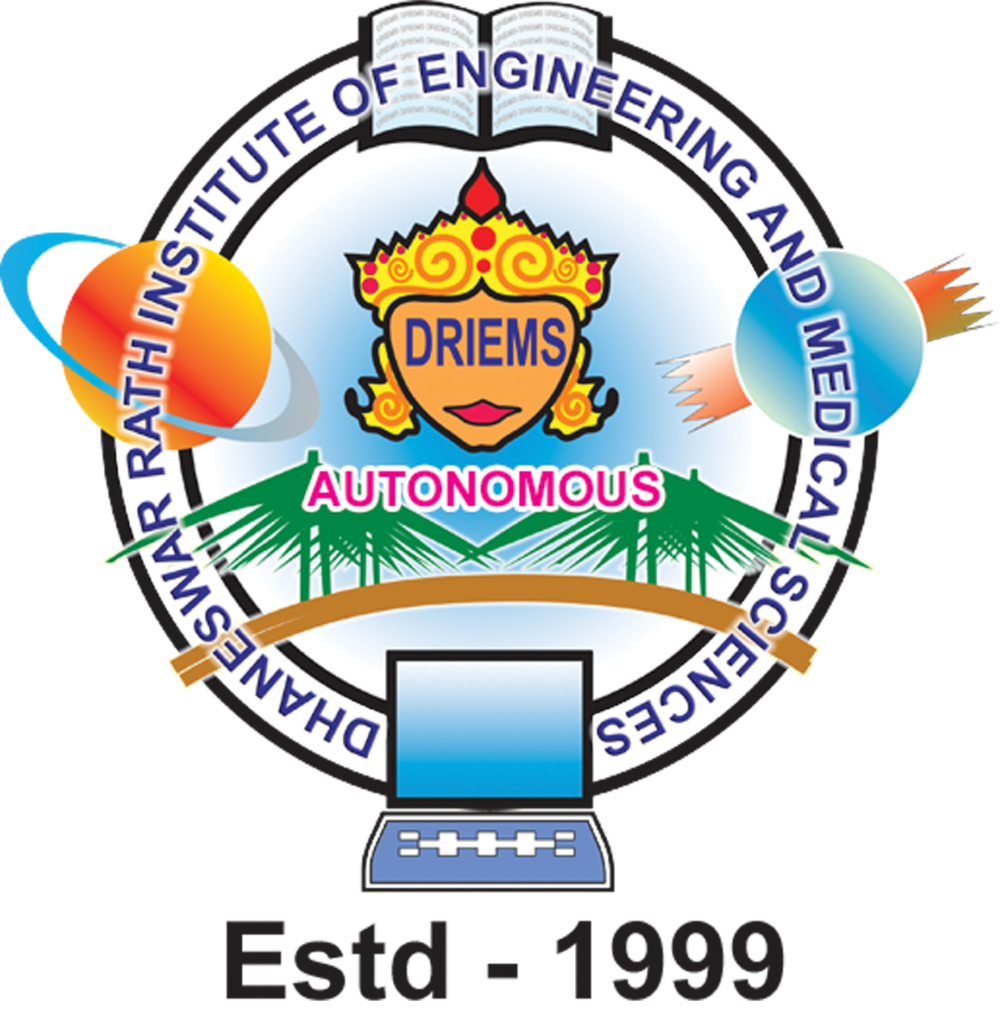7th International Conference on
Advanced Computing and Intelligent Engineering
[ICACIE 2022]
DRIEMS (Autonomous) Engineering College
[‘A’ Grade by NAAC (under UGC), AICTE Approved, NBA Accredited, BPUT Affiliated]
Cuttack, Odisha, India
www.driems.ac.in
23-24 December, 2022
Plenary Keynote Speaker

Hemant Kumar Rath
Principal Scientist & Distinguished Engineer,
TCS Research and Innovation, India
Title of the talk: Building Hyper-Connected Networks – the Future of Digital Transformation
Keynote and Invited Speakers

Prasant Mohapatra
Vice-Chancellor for Research & Distinguished Professor of Computer Science, University of California, Davis, USA
Fellow IEEE, Fellow AAAS

Rajkumar Buyya
Director, Cloud Computing and Distributed Systems (CLOUDS) Lab,
The University of Melbourne, Australia
CEO, Manjrasoft Pvt Ltd, Melbourne, Australia
Fellow IEEE, Life Member of ACM, Redmond Barry Distinguished Professor of Computer Science and Software Engineering
Title of the talk: Neoteric Frontiers in Cloud, Edge, and Quantum Computing
Abstract: Computing is being transformed into a model consisting of services that are delivered in a manner similar to utilities such as water, electricity, gas, and telephony. In such a model, users access services based on their requirements without regard to where the services are hosted or how they are delivered. The Cloud computing paradigm has turned this vision of “computing utilities” into a reality. It offers infrastructure, platform, and software as services, which are made available to consumers as subscription-oriented services. Cloud application platforms need to offer (1) APIs and tools for the rapid creation of elastic applications and (2) a runtime system for the deployment of applications on geographically distributed Data Centre infrastructures (with Quantum computing nodes) in a seamless manner.
The Internet of Things (IoT) paradigm enables seamless integration of cyber-and-physical worlds and opens opportunities for creating a new class of applications for domains such as smart cities, smart robotics, and smart healthcare. The emerging Fog/Edge computing paradigms support latency-sensitive/real-time IoT applications with seamless integration of network-wide resources all the way from edge to the Cloud.
This keynote presentation will cover (a) the 21st-century vision of computing and identifies various IT paradigms promising to deliver the vision of computing utilities; (b) innovative architecture for creating elastic Clouds integrating edge resources and managed Clouds, (c) Aneka 5G, a Cloud Application Platform, for rapid development of Cloud/Big Data applications and their deployment on private/public Clouds with resource provisioning driven by SLAs, (d) a novel FogBus software framework with Blockchain-based data-integrity management for facilitating end-to-end IoT-Fog/Edge-Cloud integration for the execution of sensitive IoT applications, (e) experimental results on deploying Cloud and Big Data/ IoT applications in engineering, and health care (e.g., COVID-19), deep learning/Artificial intelligence (AI), satellite image processing, and natural language processing (mining COVID-19 research literature for new insights) on elastic Clouds, (f) QFaaS: A Serverless Function-as-a-Service Framework for Quantum Computing, and (g) directions for delivering our 21st-century vision along with pathways for future research in Cloud and Edge/Fog computing.

Sudip Misra
Professor, Department of Computer Science and Engineering, Indian Institute of Technology Kharagpur, India
FIEEE, FNASc (India), FNAE (India), FIET (UK), FBCS (UK), FIETE (India), FRSPH (UK)

Rolf Drechsler
University of Bremen/DFKI, Germany
Title of the talk: Making Hard Problems Easy: Complete Proofs Based on Polynomial Formal Verification

Chandan Malu
Principal Technology Architect,
Infosys Technology, India
Title of the talk: Technology 2023

Anandarup Mukherjee
IfM, Department of Engineering, University of Cambridge, U.K.
Title of the talk: Intelligent networked UAVs: Enabling IoT in the skies
Abstract: The talk will explore a quick overview of UAVs followed by an introduction to aerial IoT networks. This will include different UAV application areas, types of UAV networks, and the common usage of UAVs. As data is an important aspect and often a deciding factor for most IoT architectures and networks, we discuss strategies to handle data within these UAV networks. We use three specific use cases of certain scenarios of data handling concerning reducing network data traffic, selection of appropriate aerial network routing paths, and distributed handling of the data within the aerial network. This becomes important, especially considering most current aerial IoT network attempts are still constrained in terms of resources, energy, and computing.

Barun Kumar Saha
Senior R&D Engineer, Hitachi Energy, India
Title of the talk: Sensors-as-a-Service in Vehicular IoT Networks
Abstract: Industry 4.0 relies on efficient network operations among others. In this context, Intent-based Networks (IBNs) present a great opportunity. In IBNs, users specify their intended operations using high-level instructions, based on which appropriate actions are taken. Consequently, IBNs can potentially reduce network management costs and effort, as well as improve efficiency. In this talk, we will discuss the design of a typical IBN by considering several intents corresponding to different network operations. Subsequently, we will look at how Artificial Intelligence can be used to map these intents into concrete actions and trigger such actions. We will conclude this talk by reviewing the performance of our IBN prototype and discussing some potential application scenarios.

Priya Ranjan
Bhubaneswar Institute of Technology, Odisha, India
Title of the talk: Sustainable Healthcare for Women: Are Computational Platforms up to the task?
Abstract: India is a vast country with complex socio-economic characteristics that are reflected in its medical systems. These include an insufficient number of primary care doctors practicing in rural and semi-urban areas and consequently about 70% of the population that lives in rural areas, in particular women, have limited access to adequate health care. This is further compounded by the fact that out-of-pocket expenditure constitutes around 80% of the total healthcare spending. This is a matter of grave concern as Health in India stands at a paradoxical juncture. We believe that the use of Information and Communication Technologies (ICT) for health (eHealth) has the potential to improve all these areas, that is facilitate access to quality health care for health information to women as well as to improve the quality of health-related data, as evidenced in other Low-and-Middle- Income countries. The adoption of Intelligent Decision Support Systems-based delivery of health-related services not only involves remote participation enabling the timely diagnosis to prevent missed diagnosis. Mobile-based smart communications technology has deep penetration in rural India and could serve as a crucial adjunct clinical aid in saving people’s lives. Further, the computational platform could also be prospected to develop a novel triage for assigning women patients in the order of disease severity along with dynamic and automated clinical-resource allocation to provide the best quality health services at a competitive price.

Tamoghna Ojha
ERCIM Post-Doctoral Research Fellow
Institute for Informatics and Telematics (IIT)
National Research Council (CNR), Italy
Title of the talk: Energy Balancing in Peer-to-Peer Wireless Power Transfer (P2P-WPT)
Abstract: The emergence of wireless power transfer (WPT) technologies has enabled mobile and portable devices to be charged wirelessly without depending on cables, so as to continue executing their applications seamlessly. Typically, these devices can be charged wirelessly from different types of power sources such as wireless charging pads and mobile charging vehicles. In this regard, the use of peer-to-peer (P2P) WPT methods empowers a mobile device to recharge by directly interacting and exchanging energy with nearby mobile devices, thereby providing the flexibility to leverage the nearby peer power sources while maintaining their own mobility. Also, the P2P mode of WPT provides a cost-effective alternative solution suitable in cases of constrained environments, where external chargers might not be available. In our current research, our objective is to achieve an energy balancing of the network such that the average network energy is maximized while mitigating various challenges associated with the interaction among the deployed nodes.

Ayan Mondal
Assistant Professor, Department of Computer Science and Engineering, Indian Institute of Technology Indore, India
Title of the talk: Sensors-as-a-Service in Vehicular IoT Networks

Samaresh Bera
C.V. Raman Post-Doctoral Fellow
Department of Electrical Communication Engineering
IISc Bangalore, India
Keynote and Invited Speakers in Women in Engineering [WiE]

Ipsi Ipsita Rath
Entrepreneur and Licensed Member, Odisha State Bar Council,
Cuttack, India
Title of the talk: Women in Engineering: Breaking the Barriers

Tripti Swarnkar
Professor, Department of Computer Application,
S ‘O’ A University, India

Anukampa Behera
Assistant Professor, Department of Computer Science and Engineering, ITER, S ‘O’ A University, India
Founder, Director of CITZEN, Bhubaneswar
Title of the talk: DevOps – A cultural shift
Abstract: DevOps is the amalgamation of two key divisions of the IT industry – Development and Operations which is a major paradigm shift in the domain of software engineering. It is a conceptual framework designed for the process of reintegrating software development, its delivery, and associated operations which were separate silos traditionally. DevOp is not merely a team; it is a culture of automation, information sharing, collaboration, measurement, and web service usage. The Organization’s performance from a development as well as operations point of view is boosted by DevOp operations. Especially performance in the sector of quality assurance and web service, a positive effect is observed. It refers to the practices followed in the organization with an intention towards the reducing of time-gap that is observed between changes committed to a system till that change is reflected in production with quality assurance.
Panelists in Industry Panel Discussion
Topic: Pandemic – Turning Challenges into Opportunities

Hemant Kumar Rath
Principal Scientist & Distinguished Engineer,
TCS Research and Innovation Labs, India

Prasanta Panda
Senior Data Scientist,
TCS Research and Innovation Labs, India

Soumitra Nanda
Co-founder and Director
IG Smart Care Pvt. Ltd (SPECO.ai)

Kanhu Charan Bhuyan
Associate Professor,
Odisha University of Technology and Research, Bhubaneswar

Subhashish Das Mohapatra
Senior Software Developer & Project Lead
SoftASI Tech Solutions Pvt. Ltd.
(A unit of Agilink Technologies, Inc. USA)
Bhubaneswar, India

